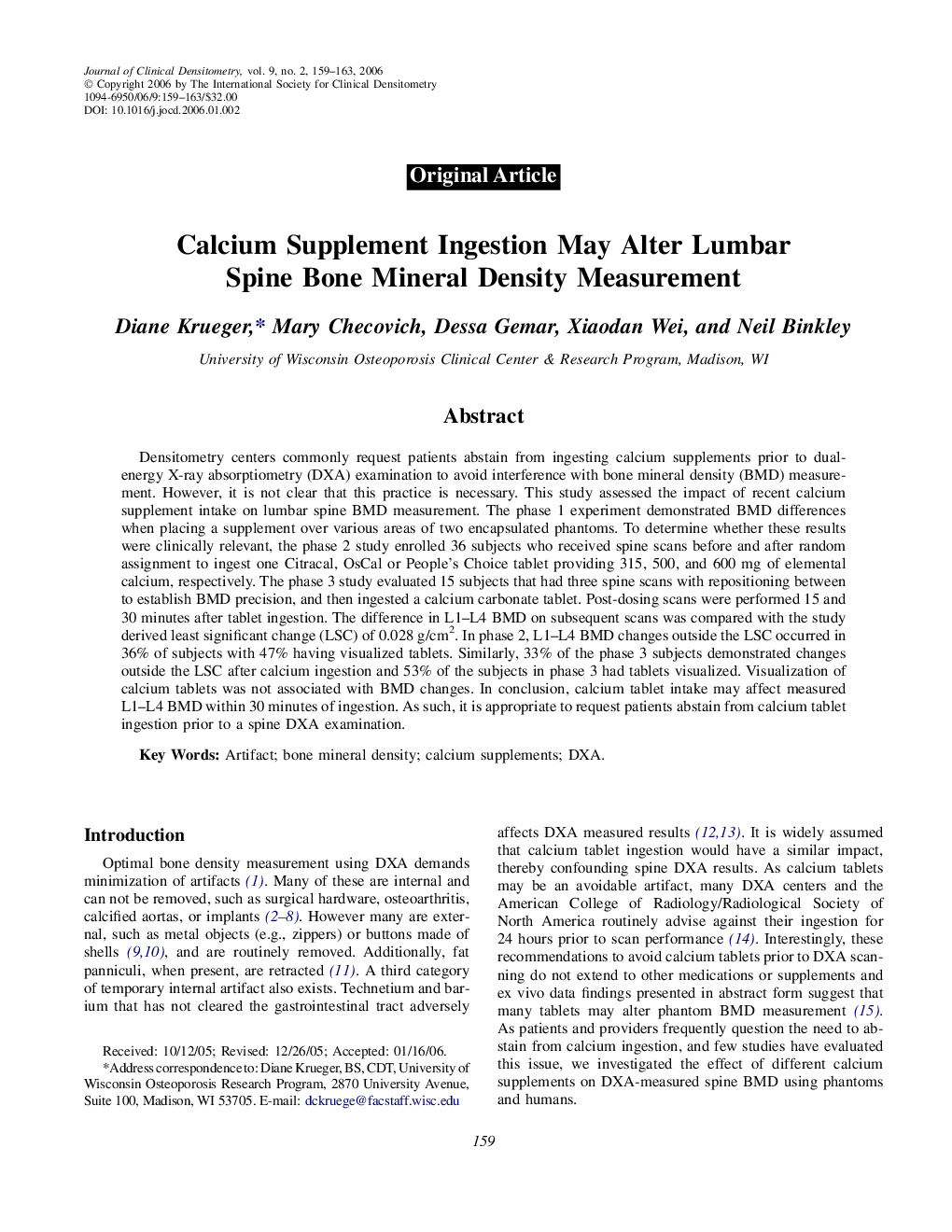| Article ID | Journal | Published Year | Pages | File Type |
|---|---|---|---|---|
| 3271855 | Journal of Clinical Densitometry | 2006 | 5 Pages |
Abstract
Densitometry centers commonly request patients abstain from ingesting calcium supplements prior to dual-energy X-ray absorptiometry (DXA) examination to avoid interference with bone mineral density (BMD) measurement. However, it is not clear that this practice is necessary. This study assessed the impact of recent calcium supplement intake on lumbar spine BMD measurement. The phase 1 experiment demonstrated BMD differences when placing a supplement over various areas of two encapsulated phantoms. To determine whether these results were clinically relevant, the phase 2 study enrolled 36 subjects who received spine scans before and after random assignment to ingest one Citracal, OsCal or People's Choice tablet providing 315, 500, and 600 mg of elemental calcium, respectively. The phase 3 study evaluated 15 subjects that had three spine scans with repositioning between to establish BMD precision, and then ingested a calcium carbonate tablet. Post-dosing scans were performed 15 and 30 minutes after tablet ingestion. The difference in L1-L4 BMD on subsequent scans was compared with the study derived least significant change (LSC) of 0.028 g/cm2. In phase 2, L1-L4 BMD changes outside the LSC occurred in 36% of subjects with 47% having visualized tablets. Similarly, 33% of the phase 3 subjects demonstrated changes outside the LSC after calcium ingestion and 53% of the subjects in phase 3 had tablets visualized. Visualization of calcium tablets was not associated with BMD changes. In conclusion, calcium tablet intake may affect measured L1-L4 BMD within 30 minutes of ingestion. As such, it is appropriate to request patients abstain from calcium tablet ingestion prior to a spine DXA examination.
Related Topics
Health Sciences
Medicine and Dentistry
Endocrinology, Diabetes and Metabolism
Authors
Diane Krueger, Mary Checovich, Dessa Gemar, Xiaodan Wei, Neil Binkley,
